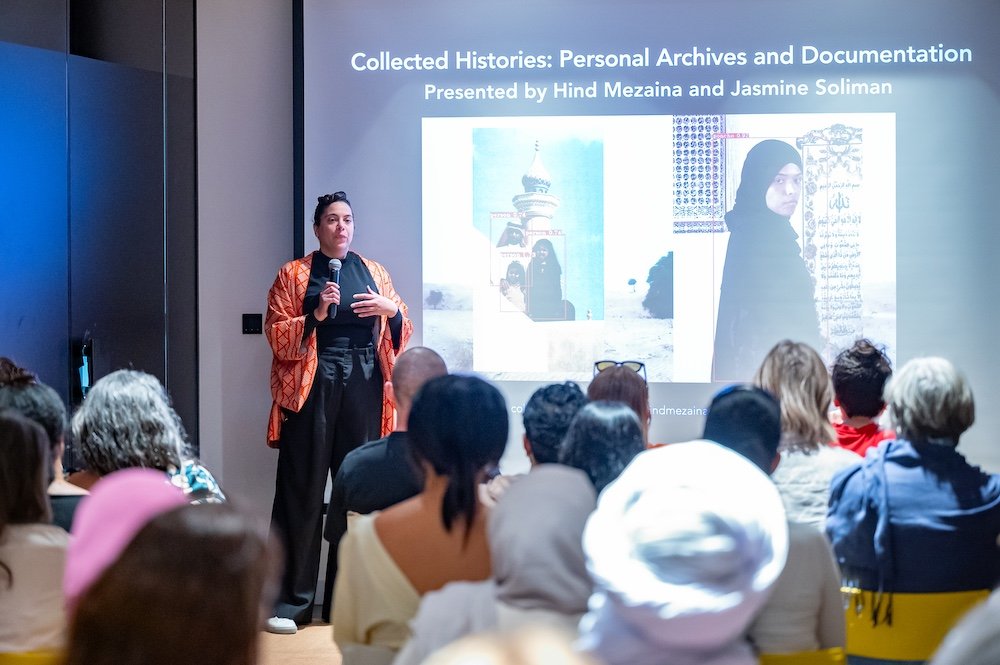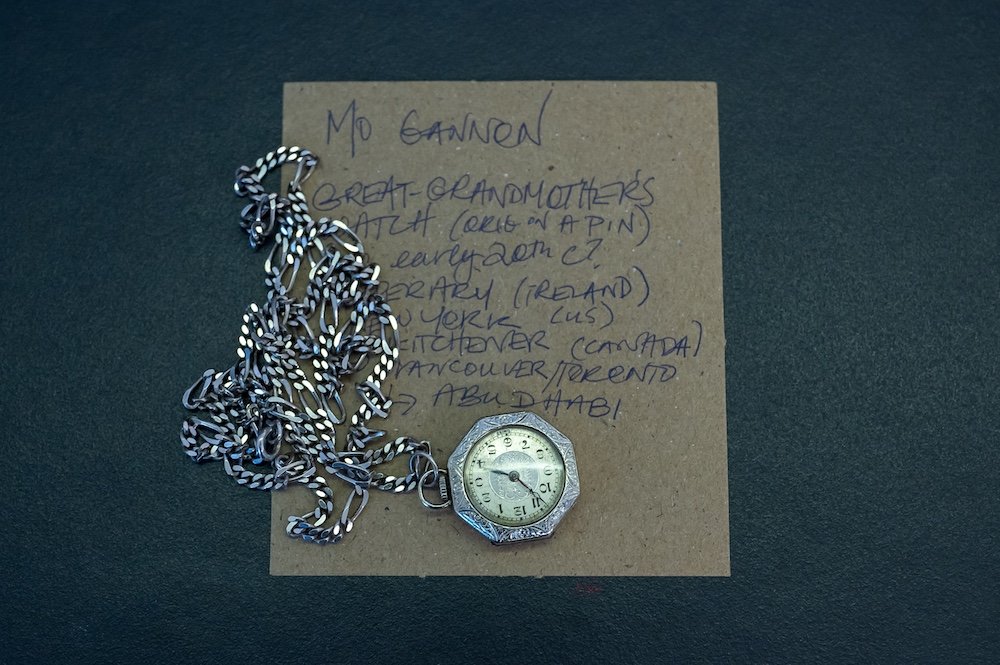Highlights From Collected Histories at 421 Arts Campus
“But maybe together we can remember.”
Earlier this month, on May 4, Jasmine Soliman and I hosted our first Collected Histories: Personal Documentation and Archives event at 421 Arts Campus. It’s a new project we founded together after several years of having long conversations about archives and how they are cared for, presented, accessed via public institutions, and the role of archives or counter archives, some that only exist as social media accounts.
We were in agreement about the lack of professional knowledge with archives run outside institutions, and how often some archive projects and platforms are about the person in charge or leading the project, verus the actual collection or the stories and people behind these collected objects.
With Collected Histories, we predominantly want to focus on personal archives and documentation through film screenings, talks and workshops, to inspire and support individuals to become ‘citizen archivists’ by cataloguing, and exploring ways to self-publish and preserve personal collections. More importantly, to have conversations with a local community that feels accessible and informative to them, regardless of age, nationality or how long they’ve lived here in the UAE.
Cultural, personal and collective memories are always relevant topics, and are more important and urgent during times of political, social and cultural changes. We’re currently experiencing a level technological, political and social upheavals regionally and around the world that feel like a significant historical shift happening in our lifetime.
Jasmine and I hope Collected Histories can help bring people together to think about memories and how to preserve, and to feel less alone during these current turbulent times. Which is why I started with the quote above, a line from Still Processing (Sophy Romvari, 2022), one of the films we screened.
Our first event far exceeded our expectations, in terms of turnout and the reactions. If anything, it has raised the bar for us, and we definitely want to do more.
We screened four short films about archives, memories, and identity that worked very well together, and was very happy with the positive response we got for showing them. It was quite moving to hear how some of the attendees related to the films, and one person even said the screenings have inspired her to make a film about her father.
Shaima Al Tamimi’s Don’t Get Too Comfortable addresses the feeling of statelessness experienced by migrants, and how a family’s archive can help a younger generation connect with the experiences of the parents and grandparents, and to keep alive the family history.
Nouf Aljowaysir’s Where Am I From? is about identity, a topic or a question that leads to layered and at times complicated answers. Multiple ethnic or geographic origins within the Arab region told through family histories that are passed from parents to their children, versus using technology to breakdown ones ethnicity that reveals answers that are reliant on existing racist stereotypes and biases. A reminder that now more than ever we need to understand and know the source of historical information.
Sophy Romvari’s Still Processing is a deeply moving film about confronting family trauma by unboxing family photos that were kept away for many years. Family archives do not always lead to feelings of happy nostalgia. They can be about unprocessed family pain that can only be talked about when people are ready to open up about them.
Theo Panagopoulos’ The Flowers Stand Silently, Witnessing reveals another archive that was unseen for many years. The filmmaker discovered in the National Library of Scotland a selection of 16mm silent and vibrant colour footage of flowers and people filmed by Scottish missionaries in Palestine in the 1930s and 40s under British occupation at the time. A discovery that led to questions about who and what is featured in these films and the representation (or lack) of Palestinians in this footage. Some of the attendees were astonished to see footage from the 1930s and 40s that were in colour. One person told me they always wondered why all this fighting and killing was over a ‘desert land’ and the film helped them realise it was never an empty or desert land to begin with. So here we are, in 2025 - and 77 years after the British occupation and the Nakba, the urgency to show films to fight against so much misinformation that still exist after all these decades.
After the screenings, Jasmine and I held a short talk sharing our thoughts about the films, followed by a workshop where we asked attendees to bring at least one item from their personal archive like a family photo, letter, diary, an heirloom.
It was during the workshop where we both felt blown away by the objects and stories that were shared. More than half the attendees of the film screenings stayed back to share their objects and stories and we heard from a variety of ages and nationalities - from a teen who brought the first smart phone gifted by their parent to an elderly woman talking about family trees. We had objects dating back to the late 1800s to only a few weeks old. We had objects that varied in size, the largest was a typewriter that needed more than one person to carry, and the smallest was personal jewellery.
Some of the stories behind each object were quirky and some were especially personal and moving. Out of respect to all the attendees, I won’t share them here, but their stories will forever be in both Jasmine and my memory.
I also want to give an extra shout out to Jonathan Burr who is also an archivist like Jasmine, who helped us facilitate the workshop and by making sure each object was carefully presented and projected on a screen for all to see, and also shared valuable insights throughout the night. He is now officially Collected Histories family.
Personally, this was one of the most rewarding event I’ve worked on and I’m hoping we can do more, to meet and inspire more people and to hear more stories. Hopefully we can be part of a growing community where we can figure out together what to do with the archives and objects shared by them.
We are very thankful to 421 Arts Campus for supporting this event and thanks to the 421 team that helped make it happen. Gratitude to Mays Albaik for being open to letting Jasmine and I propose this event and for her presence on the night, making sure everything was running smoothly and on time. There was a great synergy between Jasmine, Jonathan, Mays and myself that really made the event feel relaxed and well paced, and I do think it helped make the attendees feel relaxed and open to watching the films and sharing their thoughts and stories.
One of the attendees sent me a message later in the night saying how much she enjoyed the workshop and hopes “to continue this feeling of connectedness I felt with the group today”. I hope so too.
A special thanks to Nada Almosa who met Jasmine and I to hear us explain our proposal in more detail. She helped us formulate the event, and it is thanks to her that we were able to plan an evening that included screenings followed by a workshop, instead of hosting them on two different days as we originally envisioned. I also want to thank Mohammad Khawaja, a cinephile friend and ally, and founder of Cinema Space for listing our event on his website and for spreading the word.
Of course thanks to everyone that attended, and hope we see each other again.
If you are interested in joining our next event, or from an institution that would like to invite us, please feel free to get in touch.
Below are photos courtesy of 421 Arts Campus and The Frei.




















